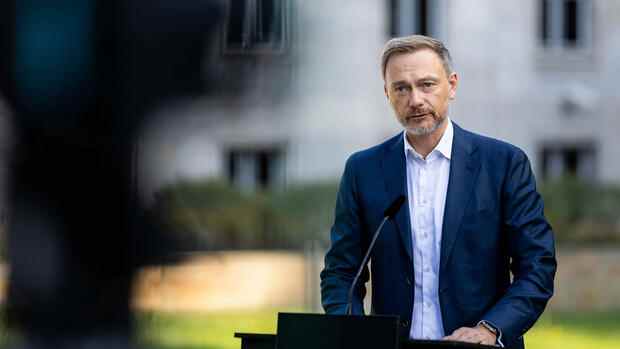The Federal Finance Minister had presented measures to relieve the burden on citizens.
(Photo: IMAGO/photothek)
Berlin With a view to Finance Minister Christian Lindner’s tax plans, the German Association of Cities has warned of billions in tax losses and called for compensation for local authorities. Managing Director Helmut Dedy told the German Press Agency that Lindner’s plans against cold progression would also result in tax losses for the municipalities of around 4.2 billion euros in 2023 and 2024. “These funds are then missing from the municipal coffers, which are already shaken by the side effects of the Ukraine war and the energy crisis and are facing major budgetary risks.”
At the same time, major tasks such as more investment in climate protection and in buses and trains have to be tackled, according to Dedy. “The federal and state governments must therefore ensure that the cities are provided with the necessary funds despite tax relief.”
Lindner wants to relieve the broad middle of society with tax plans to compensate for inflation. 48 million people would benefit, he said on Wednesday. Cold progression is a kind of creeping tax hike when pay rises are eaten up by inflation but still result in higher taxation. Higher taxes then apply, although purchasing power does not increase in real terms.
The CDU chairman Friedrich Merz has also criticized the federal government’s previous relief packages against high inflation and described them as ineffective. For possible future aid measures, he called for a targeted focus on those sections of the population who actually need support. “It would have been better to give really needy households a little more instead of distributing money with the watering can,” said Merz of the German Press Agency in Berlin. “In my view, that is the completely wrong approach. That puts a strain on the federal budget and not enough gets to those who really need support.”
Top jobs of the day
Find the best jobs now and
be notified by email.
The two main cornerstones of the previous programs were the 9-euro ticket and the energy money, explained the opposition leader in the Bundestag. The following applies to the 9-euro ticket: “Instead of improving local public transport, demand was artificially boosted – with a flash in the pan effect.” In September, all 300 euros would then receive energy money. “Let me say: the vast majority of households don’t need it.”
Merz said: “We have to ask ourselves which groups in society politics must now pay particular attention to.” These are those who receive Hartz IV or receive housing benefit. “But then, of course, there are also households whose income is just above these transfer payments. I call them border households. How do we help them?”
The state must certainly also help these citizens in such a difficult situation, said the CDU leader. “I would have liked the federal government to make a plausible, understandable distinction and make suggestions on how to effectively support households whose income is really just above the level for transfer payments.”
More: Comment: The Federal Minister of Finance’s proposal to reduce the cold progression does not come a day too soon. The taxpayers’ anger at the voracious state is great.
